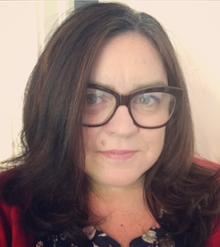
Dr. Smith’s research is on the history of psychiatry, the role of nurses and the impact of the Civil Rights Act on psychiatric practices. She was awarded a Bachelor of Arts (Honors) in English and History and a PhD in History from the University of Wollongong in Australia. Before coming to Emory, Dr. Smith worked in the School of Nursing at the University of Wollongong where she researched mental health nursing history and taught reflective practice. She has also worked in multicultural HIV/AIDS health promotion in Sydney, Australia and studied scriptwriting at the Australian Film Television and Radio School. She is currently completing a book entitled "Talking Therapy: Knowledge and Power in American Psychiatric Nursing" which will be published by Rutgers University Press in 2019. Her new project entitled "Jim Crow in the Asylum: Psychiatry and Civil Rights in the American South" examines the impact of the Civil Rights Act on the segregation practices of large state psychiatric hospitals in Georgia, Alabama and Mississippi.
Briefly, tell us about a research project you’re working on...
I have recently finished my book about the history of psychiatric nursing in America which will be published in the next few months, and I have started work on my new project, which is about the impact of the Civil Rights Act on racist practices in large state psychiatric hospitals in Georgia, Alabama and Mississippi. As well as a traditional book, it will also be an open access digital humanities project, so the book will be available on an interactive website that will include interviews, film, photography and archive pieces. In between that I am also working on a new book with a colleague in Canada about how nursing history and philosophy can work together to address social justice issues. And I teach in both the School of Nursing and the Department of History, so I get to work with students all across Emory.
What is one thing you hope your work can offer humanity by the end of your career?
I really hope that by the time I am ready to shuffle off this mortal coil people will have realized that health disparities and injustice are a direct consequence of racist and discriminatory policies of the past. To be able to address them we must really face that history. I want us to stop blaming individuals for problems that are caused by policies and ideologies that we are think are finished, but are really so deeply embedded in the social fabric that they are almost invisible.
If you could go back in time and offer yourself some advice early in your career, what would you say?
Publish from your PhD! Do not waste all that work, no matter how much you hate it! Also, trust your instincts. Always stay true to what you want to do in your research, and don’t let other people’s agendas or political and economic imperatives tell you what matters.
What do you enjoy most about being at Emory Nursing?
I love being interdisciplinary. It’s really satisfying to see the value of the humanities for nursing, and to know that the work we do in this space will improve our understanding of current health problems. I love being able to work with nursing students as well as history ones, and I love seeing the way that history and critical theory can have a real impact on nursing education, on the types of practitioners we produce and on the research they undertake.
